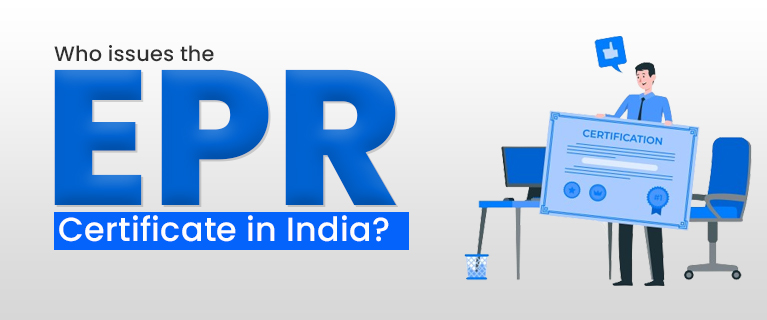Consequences of Conducting Business in Singapore
Singapore, renowned for its thriving economy and strategic location, has emerged as a preferred destination for entrepreneurs and businesses seeking a dynamic environment to establish their operations. While the city-state offers numerous benefits, it's essential to acknowledge the risks and challenges that come with conducting business in Singapore. This comprehensive guide explores the factors that drive people to choose Singapore as their business hub, the process of establishing a business in Singapore, eligibility criteria, required documents, and other critical considerations.
Why Establish a Business in Singapore?
1. Strategic Location and Connectivity:
Singapore's geographical location at the crossroads of major global trade routes has played a pivotal role in its economic success. Situated in Southeast Asia, the country serves as a crucial link between the East and West. Its well-developed transportation and communication infrastructure enhances its status as a premier trade hub. The world-class seaports, including the Port of Singapore, consistently rank among the busiest and most efficient globally, facilitating the movement of goods through maritime routes. Additionally, Changi International Airport is renowned for its connectivity, making it a major aviation hub. This strategic positioning enables businesses to access a vast network of markets, enabling the seamless import and export of goods.
Read Also This – How much does it Cost to Register a Company in Singapore2. Political and Economic Stability:
Singapore's political stability is a cornerstone of its attractiveness to businesses. The country has maintained a consistent and peaceful political environment since its independence. Its legal framework is robust and transparent, providing a solid foundation for business operations. The rule of law is upheld, ensuring that contracts and agreements are enforceable. The government's commitment to transparency and anti-corruption measures reinforces the trust businesses can place in the system. This stability extends to economic policies as well, with prudent fiscal management and a strong regulatory environment that promotes fair competition and sustainability.
3. Business-Friendly Environment:
Singapore's reputation as a business-friendly destination stems from its pro-business policies and practices. The government actively encourages entrepreneurship and investment, offering incentives and support to both local and foreign businesses. The tax regime is among the most attractive globally, with low corporate taxes and various tax incentives for specific industries. The World Bank's Ease of Doing Business Index consistently ranks Singapore highly due to its efficient processes for business registration, obtaining permits, and resolving insolvency. The streamlined bureaucracy minimizes red tape, enabling companies to focus on their core operations.
4. Skilled Workforce:
Singapore's emphasis on education and innovation has cultivated a highly skilled and diverse workforce. The country's education system is known for its quality and global recognition. Singaporeans have access to world-class universities and training institutions, resulting in a workforce that is well-equipped to meet the demands of various industries. The government's investments in research and development have further enhanced the country's technological capabilities, attracting multinational companies seeking talent for innovation-driven initiatives. This availability of skilled professionals contributes to Singapore's position as a regional hub for research, development, and technological advancements.
5. Intellectual Property Protection:
Intellectual property protection is a critical aspect of Singapore's appeal to businesses in the knowledge-based economy. The country's comprehensive IP laws and regulations provide robust protection for patents, trademarks, copyrights, and trade secrets. This legal framework encourages companies to invest in research, innovation, and creative endeavours without fear of unauthorized use or infringement. The Intellectual Property Office of Singapore (IPOS) actively supports businesses by providing resources for IP registration, enforcement, and commercialization. The assurance of IP protection fosters an environment where businesses can confidently develop and commercialize their intellectual assets.
In summary, Singapore's strengths as a global business destination lie in its strategic location, stable political and economic environment, business-friendly policies, skilled workforce, and strong commitment to intellectual property protection. These factors collectively create a conducive ecosystem that attracts businesses seeking growth, innovation, and global market access.
The Process of Establishing a Business in Singapore
Establishing a Business in Singapore involves several crucial steps that entrepreneurs need to follow for a successful company registration:1. Choose a Business Structure: For a successful business setup in Singapore, the first step is to decide on the appropriate business structure that aligns with your goals and needs. Singapore offers several options, including Private Limited Company (Pte Ltd), Sole Proprietorship, Partnership, and Limited Liability Partnership (LLP). The most popular choice is the Private Limited Company (Pte Ltd) due to its benefits of separate legal entity status and limited liability protection. A Pte Ltd company can have a maximum of 50 shareholders.
2. Company Name Reservation: Once you have a business structure in mind, it's time to choose a suitable company name. The name should reflect the nature of your business and adhere to Singapore's naming guidelines. It should not be identical to existing companies and should not infringe on any trademarks. ACRA's online portal provides a convenient platform for name reservation. Once approved, the name is reserved for 120 days.
3. Company Registration: With the approved company name in hand, you can proceed to register your company with the Accounting and Corporate Regulatory Authority (ACRA). This involves submitting necessary documents such as the company's constitution (previously known as Memorandum and Articles of Association), details of shareholders, directors, and company secretary. You can choose to engage the services of a professional firm to assist with the registration process.
4. Appointing Directors and Shareholders: Singapore company law mandates that every company must have at least one local director who is either a Singapore citizen, Permanent Resident, or holds an Employment Pass. Foreign individuals or companies can also be appointed as directors. The director should be at least 18 years old and should not have any disqualifications. The company must also have shareholders, and a shareholder can also be a director.
5. Registered Address and Company Secretary: Every registered company in Singapore is required to have a local registered office address. This is the official address for receiving correspondence from government agencies and other official communications. Additionally, within six months of incorporation, the company must appoint a qualified company secretary. The company secretary ensures that the company complies with statutory requirements and assists with administrative tasks.
Establishing a business in Singapore involves a systematic process that includes choosing a suitable business structure, reserving a company name, registering the company with ACRA, appointing directors and shareholders, and ensuring compliance by having a registered office address and company secretary. It's crucial to adhere to the legal and regulatory requirements to ensure a smooth and successful business setup in Singapore.
Read Also This – A Comprehensive Guide to Company Formation in SingaporeEligibility Criteria and Required Documents
Now, let's delve into the eligibility criteria to establish a business in Singapore:1. Directors and Shareholders: One of the attractive aspects of establishing a business in Singapore is the flexibility regarding directors and shareholders. There is no requirement for directors or shareholders to be Singapore residents. Foreign individuals and companies can own 100% of the shares in a Singapore company. This openness encourages international entrepreneurs to easily establish and operate businesses in the country.
2. Company Secretary: A company secretary is a mandatory requirement for all Singapore companies. The appointed company secretary must be a Singapore resident. This individual plays a crucial role in ensuring compliance with legal and regulatory obligations. They are responsible for maintaining company records, filing annual returns, and ensuring that the company adheres to the relevant laws.
3. Registered Address: Every Singapore company must provide a local registered address for official communications and correspondence. This address cannot be a P.O. Box; it must be a physical location within Singapore. This requirement ensures that the company has a legitimate and accessible presence in the country.
4. Paid-Up Capital: Singapore has no strict minimum paid-up capital requirement for company incorporation. Businesses can start with a nominal amount as low as SGD 1. This flexible approach enables entrepreneurs to initiate their business ventures without significant initial capital burdens.
Other Important Considerations
1. Bank Account Opening: After a successful business setup in Singapore, the next step is to open a corporate bank account. This account is essential for managing financial transactions, including revenue, expenses, and international transactions. Singapore's well-established banking sector offers a range of banking services to cater to businesses' financial needs.
2. Taxation: Singapore's tax system is known for its competitiveness and attractive incentives. Newly incorporated companies can benefit from tax exemptions for the first few years of operation, which significantly reduces the tax burden. However, businesses must be aware of Goods and Services Tax (GST) obligations if their annual turnover exceeds a certain threshold. Proper tax planning can help businesses optimize their tax liabilities.
3. Business Licenses: Depending on the nature of the business activities, certain industries may require specific licenses or permits from relevant government agencies. These licenses ensure that businesses operate within the legal framework and meet industry-specific regulations. It's crucial for entrepreneurs to understand and fulfill any licensing requirements applicable to their industry.
4. Employment Pass: Foreign entrepreneurs or professionals who wish to actively manage and work for their Singapore company can apply for an Employment Pass (EP). The EP allows individuals to live and work in Singapore while overseeing their business operations. Meeting the eligibility criteria, such as possessing relevant qualifications and a job offer, is necessary for successful EP application.
In summary, establishing a business in Singapore offers various advantages due to its liberal foreign ownership policies, favourable tax environment, and robust infrastructure. The process is streamlined, and the business-friendly ecosystem encourages both local and international entrepreneurs to take advantage of the opportunities Singapore has to offer.
Read Also This – Setup Company In Singapore With Fast Incorporation ServiceConclusion
Establishing a business in Singapore presents a world of opportunities within a robust and business-friendly ecosystem. The process, while streamlined, demands adherence to regulatory requirements and thoughtful decision-making. As a global financial and commercial hub, Singapore offers a secure and stable environment, facilitating growth, innovation, and international business expansion. With the right guidance and understanding of the process, aspiring entrepreneurs can navigate the complexities and reap the benefits of conducting business in Singapore.










